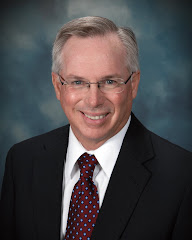FROM THE CAPITOL
News for the 118th District
By Representative Don Hineman
July 23, 2009 Volume 1, Number 10
________________________________________
National Health Care Reform?
The number one national topic these days is the debate over health care reform. But it seems to me that even the title of the issue is misleading, because it really isn’t about health care reform; it is about expansion of health insurance to include tens of millions of Americans currently uninsured or underinsured. Obviously having everyone insured would on some level be a good thing, as there are social and moral benefits in having everyone adequately insured. Problem is, the cost of such a program is controversial and hard to nail down. I suspect that all of the current predictions are much too low. As the uninsured are enrolled in the program, demand for health care services will skyrocket. You can’t add tens of millions of newly-insured “consumers” to the system and expect anything else. And yet there is little if any discussion about expanding the supply of health care services and health care providers in response. Incredibly, the supply appears to be shrinking, as the folks in Larned, who are about to lose their hospital, can attest. Those in Congress and the present administration have not yet found a way to repeal the law of supply and demand, so the net impact of adding new consumers and new demand to the system will be increasing costs for services, declining quality of care as the present health care system struggles to keep up with the new demand, and potential delays in access to service.
My wife Betsy underwent treatment last December for a serious medical condition, and she was in the hospital for a total of seventeen days. She is fine now, and we will be forever grateful for the excellent care she received. But we learned firsthand how health care costs are spiraling out of control. And yet before and during Betsy’s hospitalization neither of us asked the hospital administration or any of the specialists who treated her what anything was going to cost. That’s in stark contrast to my farming operation, where I know the cost of fertilizer, herbicide, seed or diesel fuel before I buy. The difference of course is that Betsy and I weren’t personally responsible for her mounting medical bills because we were insured. And because someone else (the insurance company) was picking up the tab, we didn’t do a lot of shopping around for health care providers, asking about costs, or double checking the bills to make sure they were accurate. That’s the way our health care system works these days, and adding tens of millions of new “consumers” to the system will amplify the problem.
As a state legislator I am watching the ongoing debate with great interest, partly because I fear that the astronomical cost of the proposed system could eventually come to be “shared” with the states, in the same manner that Medicaid is now financed. In Kansas, the state’s responsibility for Medicaid costs has risen from 0% of the State General Fund in 1974 to 15% of the State General Fund today. How does a state that is facing a $500 million to $1 billion shortfall next year take on the responsibility for an expanded health insurance system?
It is unfortunate that the current focus isn’t on true health care reform, because the need is acute. The solution to the problem will be multifaceted, but here are a few ideas I believe have merit:
1. Develop a system in which the users of health care services become smarter consumers. This will only happen when the consumer has a personal stake in the costs. I applaud Congress for enacting legislation several years ago authorizing Health Savings Accounts. Unfortunately this good idea is going largely unnoticed and unused. However there are private businesses that have reacted to escalating health insurance plan premiums by going to a much higher deductible plan and putting the money saved into Health Savings Accounts for their employees. The results are very encouraging. As the employees see that they can benefit financially they have begun to adopt healthier lifestyles and ask many more questions about cost when they do need health care.
2. Enact meaningful tort reform and caps on medical malpractice claims. Our health care system currently forces hospitals and doctors to order every test and procedure imaginable, to minimize their risk of being hauled before a review board or being sued. The health care providers can’t be blamed for acting that way; they are merely responding rationally to what they perceive as a substantial risk. But the added cost to the health care system from countless unnecessary tests and procedures has to be huge, and in the end we all pay for it.
3. Examine the process whereby the Federal Drug Administration approves new drugs, with a view toward streamlining and simplifying the process. FDA approval is extremely costly, and is a direct component in the cost of prescription drugs in America today.
4. Advance the concepts of “medical home” and sharing of electronic medical records among health care providers to insure adequate care while avoiding unnecessary duplication and dangerous drug interactions.
These suggestions are just the beginning, and those more involved in the health care field could undoubtedly add many more. The need for true health care reform is undeniable, so how is it that we are currently faced with a “reform” concept that seemingly focuses on the mistaken idea that everything will be OK once we get everyone insured?
________________________________________
Citizen Legislature and Sine Die
On Thursday, June 4 the 2009 session of the Kansas Legislature came to a close. Referred to by the Latin term “Sine Die”, final adjournment means that the legislature is officially adjourned for the rest of the year. Legislators will continue to work on individual initiatives, standing committees, and special interim committees, but no official meeting of the entire legislature is now scheduled until the 2010 session convenes in early January. Each year the Kansas legislature is authorized to meet for ninety days, and the session is broken into two parts: a roughly eighty day session from mid-January until early April and a shorter “veto” or wrap-up session in late April-early May. The ceremonial final adjournment then occurs in late May or early June. The legislature is called a citizen legislature because it only meets for a portion of the year, as opposed to a professional legislature that is in session year-round. Only a few states have professional legislatures. Many would see it as a good thing that Kansas legislators finish their work and go home in the spring, rather than hanging around the state capitol all year. And many of us legislators take solace in the fact that even though we are politicians, at least we aren’t professionals…
________________________________________
Stay Right!
In a move intended to enhance the orderly flow of traffic and reduce incidents of road rage, the legislature has enacted a law restricting the use of the left-most lane on multi-lane highways. The new law, which took effect July 1, restricts drivers on multi-lane highways to use of the left-most lane only when overtaking or passing another vehicle or preparing to make a proper left turn. The provisions do not apply to authorized emergency, law enforcement, or Kansas Turnpike Authority vehicles, or KDOT vehicles used for construction or maintenance work. The law also does not apply to that portion of multi-lane highways or streets within city limits. Law enforcement officials will issue warning citations during the first year the law is in effect, from July 1, 2009 until June 30, 2010. Thereafter, violators will be charged a $60 fine.
________________________________________
Issues of Individual Rights
Governmental oversight and individual liberty were major themes of the 2009 session. There was lively debate on issues such as a statewide smoking ban and mandatory seatbelt laws. In both instances the principles of individual liberty and responsibility were at issue, counterbalanced by well-documented health costs to the state and society. On both subjects no new laws were enacted, but I expect a vigorous challenge on each topic and perhaps a few others next year. The continual struggle between personal rights and government intervention is one of our most basic and fundamental points of contention in government. I believe debate on these topics is healthy, and hope you’ll keep me informed of your perspective so I may accurately represent our district.
________________________________________
Cowboy Logic: "Only a few will learn from other people’s mistakes; most of us have to be the other people.”
________________________________________
Quote of the Week: “Bad habits are formed in good times, and good habits are formed in bad times” –Representative H. David Cotta, Maine
________________________________________
And finally, a thought to ponder: “I used to eat a lot of natural foods until I learned that most people die of natural causes”
Subscribe to:
Comments (Atom)




